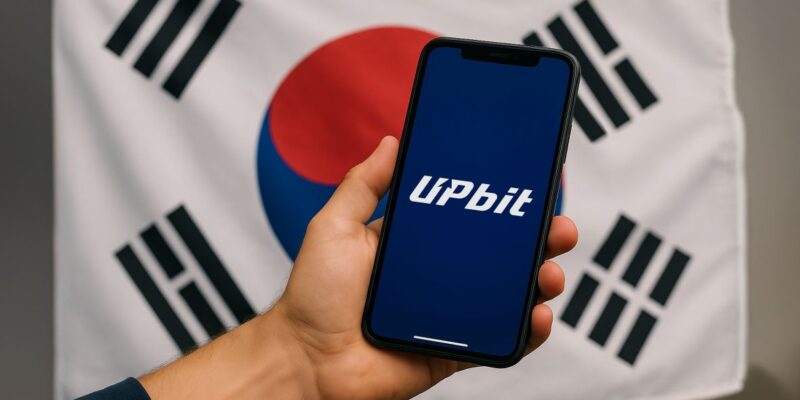
Key Takeaways
- South Korea completed its first regulated crypto-to-fiat transaction, with World Vision converting donated ETH via Upbit.
- The transaction marks the first implementation of the FSC’s multi-phase roadmap for corporate participation in the digital asset market.
- Future policy phases aim to extend access to publicly listed companies and institutional investors, backed by platforms like Upbit.
- Donated crypto proceeds were used to support vulnerable youth, demonstrating the growing role of virtual assets in humanitarian initiatives.
South Korea has entered a new phase of crypto adoption as Upbit facilitated the country’s first corporate crypto-to-fiat transaction, following the removal of restrictions on institutional digital asset activity.
The transaction, conducted by the international humanitarian organization World Vision, involved the conversion of 0.55 (ETH), worth approximately KRW 198,000 (around $1,430), into Korean won through Upbit’s KRW market.
This marks the first time a domestic institution has legally liquidated cryptocurrency under the country’s revised framework for corporate participation in the virtual asset space.
Digital Asset Framework Begins Rollout
Earlier this year, the Financial Services Commission and related agencies introduced a multi-phase roadmap outlining the requirements for corporate entities to participate in digital asset trading.
The rollout begins by allowing non-profit organizations to engage with cryptocurrencies, with future phases set to extend access to publicly listed companies and certified institutional investors.
In its official statement, Upbit’s operator Dunamu expressed confidence in its ability to support the transition, noting that it is prepared to provide fiat account services to general corporations as soon as regulatory conditions are in place.
Cryptocurrency Emerges as a Tool for Humanitarian Aid
Beyond its regulatory significance, the transaction underscores the growing role of cryptocurrency in the humanitarian sector.
The (ETH) sold by World Vision was donated as part of a March campaign titled “Future Generation, Cheer Up!”, organized in partnership with Dunamu to support vulnerable youth in South Korea.
Globally, the use of cryptocurrency in humanitarian efforts has seen increasing adoption.
In response to the 7.5-magnitude earthquake that struck Japan’s western coast in January 2024, Japanese blockchain firm Oasys launched a crypto-based fundraising initiative, accepting donations in $OAS, ETH, BTC, and other major assets to support relief operations.
Similarly, in 2023, Binance pledged millions in (BNB) to assist earthquake victims in Morocco. Other platforms, including Huobi, Bitfinex, Tether, and Bitget, provided similar support following the devastating earthquakes in Turkey and Syria.
Meanwhile, the Singapore Red Cross incorporated digital assets as an official donation method, accepting Bitcoin, Ethereum, Tether, and (USDC) via a licensed crypto payment gateway, to enable rapid conversion and settlement of donations.
Looking Ahead
South Korea’s first NGO-led crypto transaction marks a significant move toward regulated institutional participation in the digital asset space, with upcoming policy phases expected to extend access to corporate investors, backed by infrastructure from exchanges like Upbit.
Read More: Market Digest: Gold Outshines Amid Rising War Tensions, Bitcoin Battles $105K


